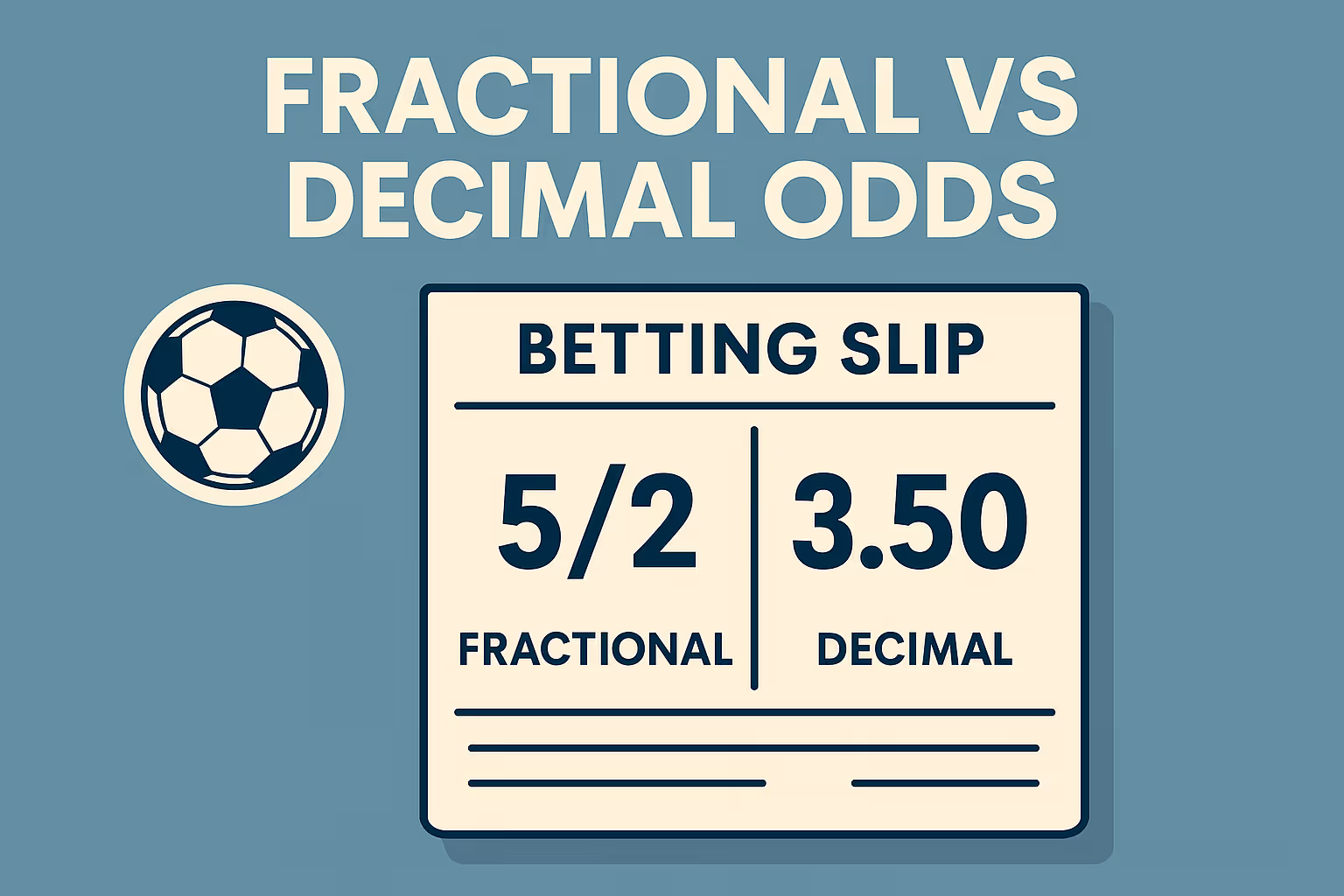If you’ve ever looked at a bookmaker’s site and seen odds written as 5/2 or 3.50, you’re looking at the two most common ways to display betting prices - fractional odds and decimal odds.
Both represent the same thing - the likelihood of an outcome and your potential payout - but they’re written differently.
Here’s a simple guide to help you understand the difference and why we recommend using decimal odds for clarity.
✅ What Are Fractional Odds?
Fractional odds (e.g. 5/2, 4/1 or 10/11) are traditional in the UK and Ireland.
- Example: 5/2 means for every £2 you stake, you’ll profit £5.
- Total Return = Stake + Profit.
💡 Quick Calculation Tip:
Divide the fraction to get the decimal equivalent.
- 5 ÷ 2 = 2.50 → add 1 = 3.50 in decimal odds.
✅ What Are Decimal Odds?
Decimal odds (e.g. 3.50, 1.80 or 2.25) are widely used across Europe and online bookmakers.
- Example: 3.50 means for every £1 you stake, you’ll receive £3.50 total (including your stake).
💡 Why We Recommend Decimals:
- Easier to calculate potential returns.
- Great for quick comparisons.
- Matches the Goals Guru system (all our tips use decimal odds).
💡 Goals Guru Tip: Most bookmakers let you switch between odds formats in account settings. We recommend doing this before placing your first bet.
⚠️ Common Mistakes to Avoid
- ❌ Confusing odds formats mid-bet.
- ❌ Forgetting stake inclusion in decimal odds.
- ❌ Assuming higher odds = better value (What Is Value Betting?).
📈 Why It Matters for Smart Betting
Knowing how to read odds quickly helps you:
✅ Compare bookmakers for better prices.
✅ Understand implied probability (e.g. 2.00 = 50% chance).
✅ Make sharper, data-driven bets.
👉 Want smarter betting insights? Join Goals Guru for weekly picks and tutorials.


